Chris Froome: I'm still improving, physically and mentally
Four-time Tour de France champion on adapting and surviving
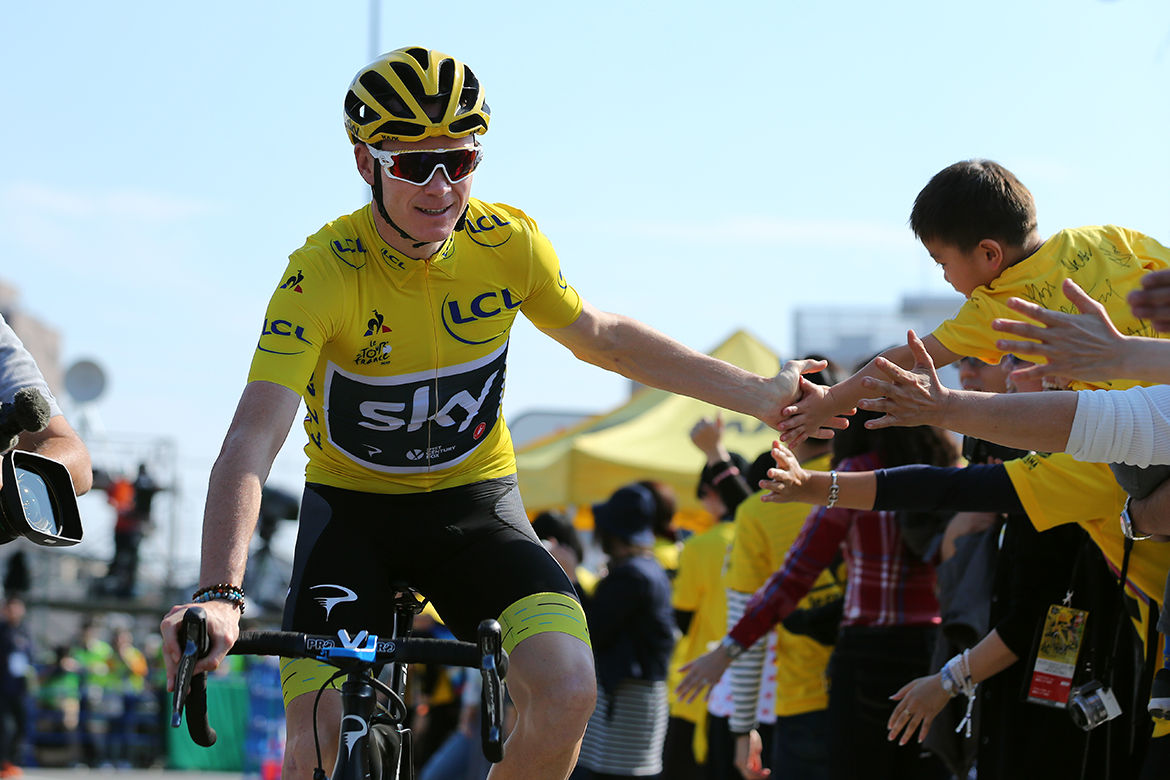
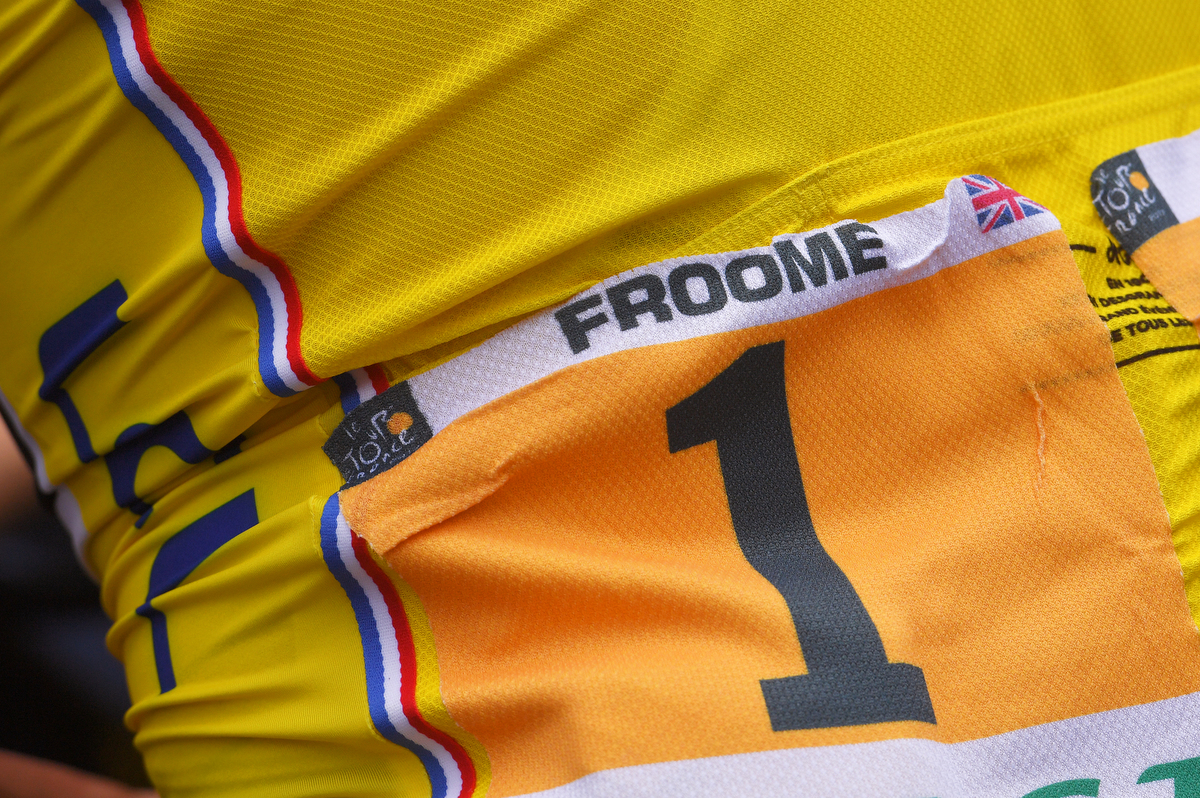
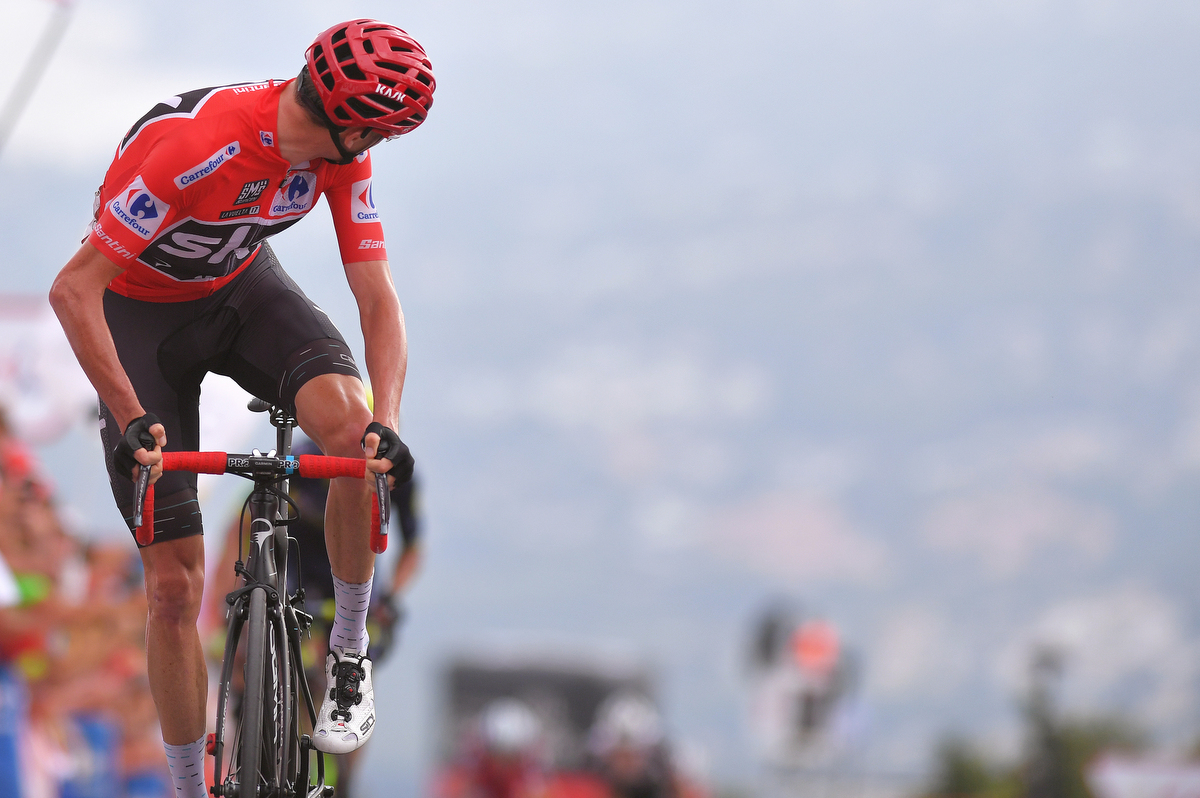
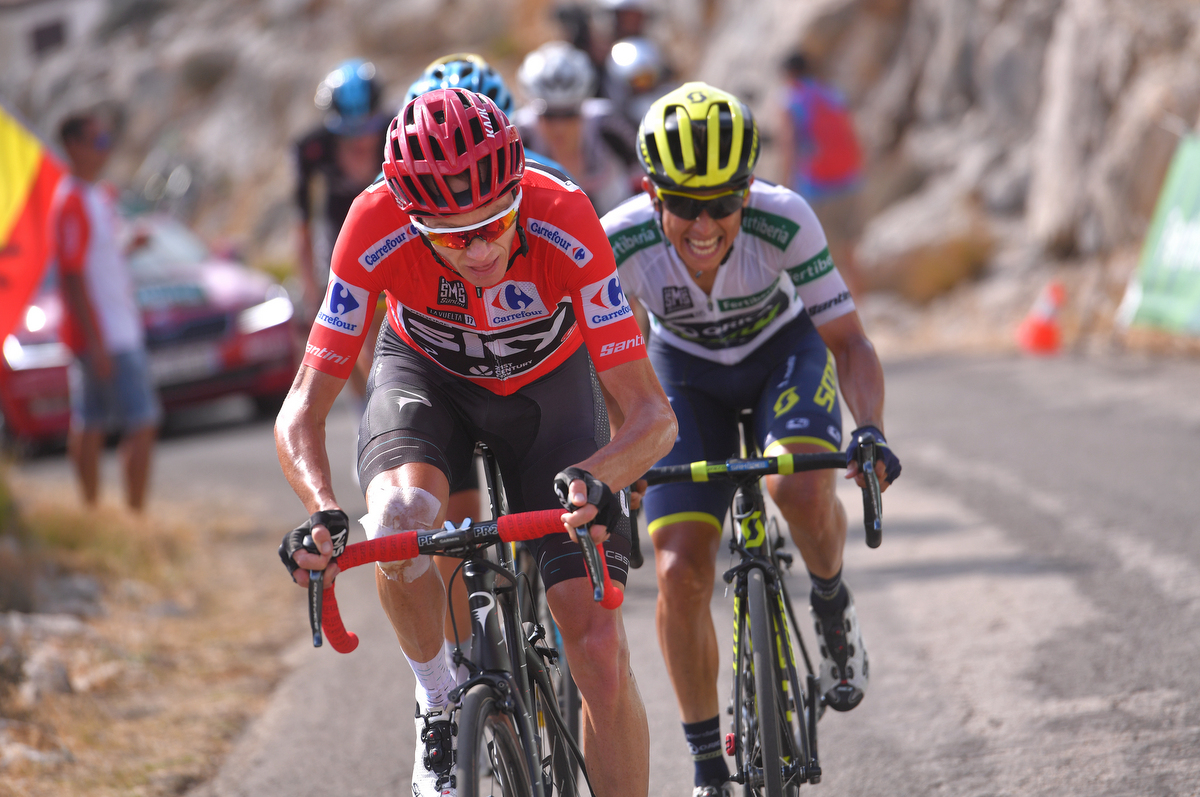
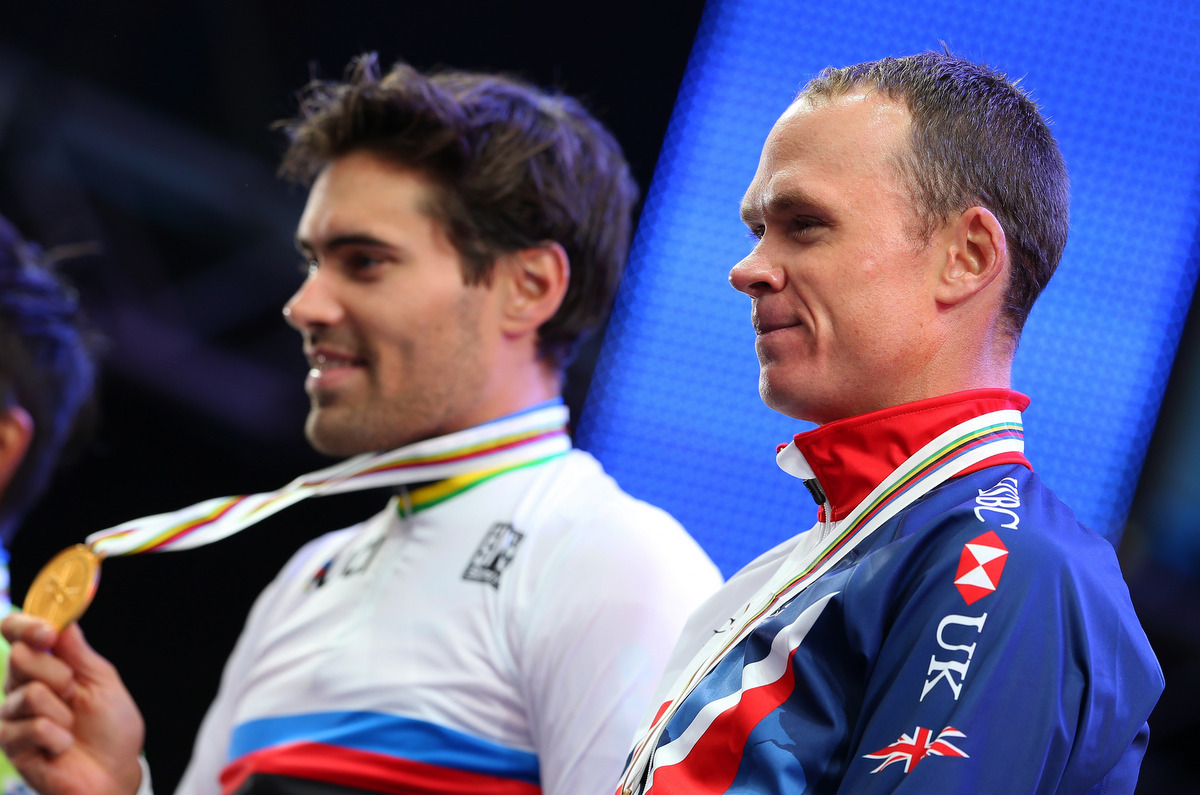
Charles Darwin would have found Chris Froome a fruitful case study. Like the finches of the Galapagos, the Team Sky rider has come to embody the evolutionary theory of natural selection, where adaptation is the key to survival.
Chris Froome completes Tour de France - Vuelta a Espana double
Dumoulin: It's not my motivation just to challenge Froome - Podcast
Tour de France 2018 route reactions from Froome, Contador and Quintana
2018 Tour de France route analysis with Bardet, Yates and Froome - Podcast
Prudhomme calls on Dumoulin to take on Froome at the Tour de France
While the different species of finch in the different corners of the islands had precise adaptations to suit the specificities of their habitats, Froome has evolved according to the changing nature of the Tour de France to win four of the past five editions.
"I'm an all-rounder, and I try and adapt to whatever's thrown at me," Froome tells Cyclingnews in Japan as the off-season begins, explaining that each Tour has thrown up a different challenge, and that with Tom Dumoulin breaking through, he will have to adapt again.
Each may have presented its own difficulties, but Froome's four wins can crudely be divided in two. In 2013 and 2015 he blew the opposition away on the first summit finish, while in 2016 and 2017 he made precious few advances in the mountains, his victories built instead on the time trials. But while the quantity of kilometres against the clock has decreased, Froome seems to have learned – thanks to marked technical improvements – how to make inroads and stifle his rivals in a much wider range of terrain and situations.
A 'chameleon', and a 'monster of pragmatism', was how he was described by L'Equipe at the end of this year's Tour.
"For me, there are certainly two factors to looking at the preparation for each edition of the Tour de France: the parcours and who I'm racing against," says Froome. "We look at the factors that are going to be the main drivers for gaining time, and in order to work that out you need to know also who the main rivals are going to be.
"In previous years I've been more aggressive in the mountains, whereas this year I probably knew that riding the climbs by just doing enough to stay at the front of the race was enough, and not necessarily having to attack the climbs, knowing that I had the final time trial in Marseille, where I favoured my chances over [Romain] Bardet and Rigo [Uran]."
Get The Leadout Newsletter
The latest race content, interviews, features, reviews and expert buying guides, direct to your inbox!
This year's victory, however, was arguably the least convincing of the lot. It was the first Froome had won by less than a minute and, while the raw statistics and talk of the closest Tour in decades belied the lack of true suspense in the air, it seemed telling that this was Froome's first yellow jersey without a stage win. Even Eddy Merckx suggested it lacked prestige as a result.
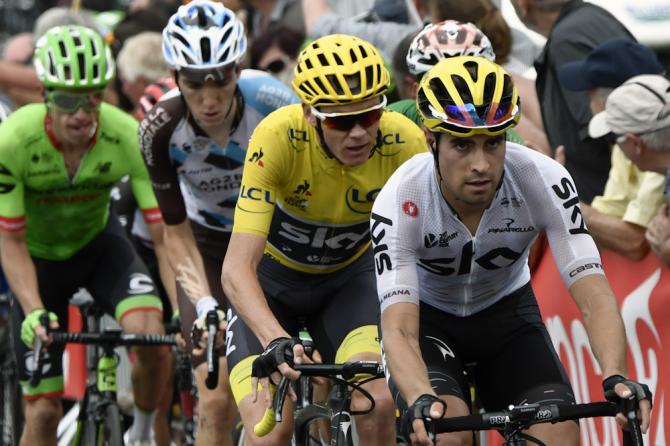
And then there's his team. At this year's Tour, Froome seemed to hide behind the so-called 'Skybots' to a greater extent than ever, leading Vincenzo Nibali to argue that, had he been in a different team, Froome would not be on the cusp of joining Merckx, Bernard Hinault, Jacques Anquetil, and Miguel Indurain as five-time winners of the Tour de France.
The changing nature of Froome's Tour de France victories makes you wonder whether he is, in purely physical terms, as strong a rider as he was two or three years ago. After all, this year he failed to win a race ahead of the Tour for the first time since he became a serious Grand Tour contender – but then again it's hard to argue with an approach that led to the first modern-day Tour-Vuelta double.
Is Froome amorphous, reinventing himself according to each situation, or is his increasing pragmatism masking some sort of physical decline?
"I don't think I'm a weaker climber," the 32-year-old says confidently. "If anything, the numbers are very similar – the times and the speeds haven't changed much. If I just compare myself now to where I was previously, if anything I'm climbing faster than I was previously, looking at the data.
"The numbers this year in the Vuelta were better than they've ever been in my life, and not just over a certain distance; it was across the board, from two minutes all the way up to half an hour. The numbers were higher than I've ever seen before. It is really encouraging to see I'm still improving physically."
Froome suggests that the scarcity of devastating mountain attacks is down to the 'slimmer margins' between the principal contenders. "The level of the rivals has improved a lot, and more guys are spending weeks upon weeks up at altitude, training a lot more specifically now," he says.
It's at this point that he issues what could be construed as a subtle dig at the Tour de France organisers, who have hardly been subtle themselves in their desire to loosen the Team Sky stranglehold. This year especially, race director Christian Prudhomme talked of his hopes for an open Tour, stripped of obvious pre-ordained flashpoints, where the yellow jersey could be in play anywhere and at any time. Froome, who has always employed a less rigid approach at the Vuelta than at the Tour, suggested it backfired.
"This year's route, only having a few summit finishes… if you compare the Tour and the Vuelta, in Spain if one summit finish doesn't go quite right you've got another eight or nine to correct it and change your tactics," he said. "But with only two or three summit finishes, you basically can't afford to risk it like that, so I think that led to a much more cagey race this year."
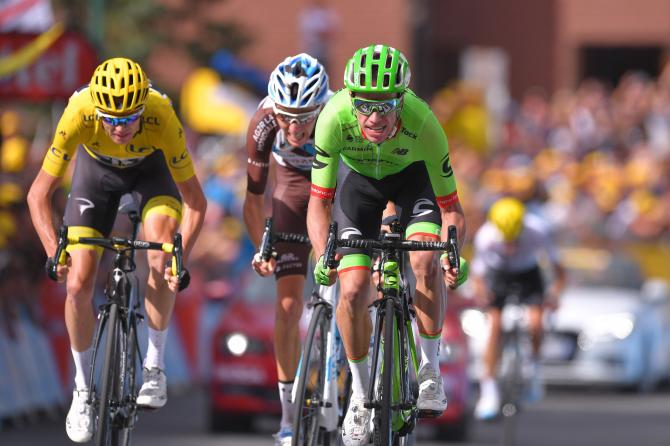
More complete
The Chris Froome that ends the 2017 season with four Tour de France titles and Vuelta a España on his palmares is unrecognisable from the one that turned professional as a naive 22-year-old back in 2007.
Froome grew up in Kenya and South Africa, where everything – from the roads and the equipment to the training and racing itself – was a far cry from the ways of the European scene to which his new peers had long been accustomed. He'll never live down the time he rolled down the start ramp of the time trial at the 2006 World Championships and clattered straight into a race marshall.
"I feel still as a rider now I'm still learning, I'm still learning, still improving," he tells Cyclingnews, having made his sudden breakthrough at the 2011 Vuelta and never looked back.
"Just as important as the physical side there's also the experience side, and just the tactical savvy of knowing where to sit, where to save energy, how to be safe. That was one thing if I compare where I am now with when I first arrived in Europe and first started riding professionally, I had no clue of just the small simple things you pick up over years and years of racing."
Froome has steadily gone about ironing out his weaknesses, and has even turned them into strengths.
The art of positioning saw him seize yellow back from Fabio Aru on the uphill finish at Rodez at this year's Tour, while his frantic top-tube descent of the Col de Peyresourde captured a stage win and, bizarrely, the imagination of the public.
As for the crosswinds, they've played a part in each of the past three editions of the Tour, helping to form a considerable chunk of his buffer over Nairo Quintana in 2015, followed by that late break with Peter Sagan in 2016, and again this year on stage 16 when he was among the chief instigators of the echelons that claimed at least one key casualty in Dan Martin.
"Am I more complete? Certainly across the board, I would say so," says Froome.
"That's the way I'd categorise myself as a Grand Tour rider: I'm an all-rounder. Whereas if you look at someone like Dumoulin, I'd say he's a time triallist who has learned to climb. I'd certainly say I'm more of an all-rounder. That's what a Grand Tour is all about; you have to hold your ground in each area, every day."
As a result, his race management is such that he seems more unshakeable than ever – if somehow diminished – in the yellow jersey.
"I've certainly got used to being in that position," he says. "I've certainly learned to deal with that pressure and that burden of being in the leader's jersey and having a target on my back."
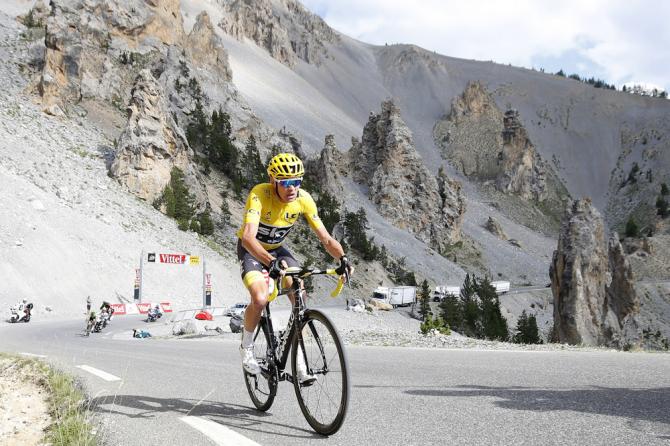
Going head to head with Dumoulin
Froome may not see Dumoulin as an all-rounder but he does see him as potentially his biggest rival in the coming years.
The Dutchman's victory in this year's Giro d'Italia, where multiple Grand Tour champions Nairo Quintana and Vincenzo Nibali were consigned to the lower steps of the podium, was a resounding confirmation of his arrival as a Grand Tour rider, and it wasn't long before attention turned to a possible future clash between him and Froome.
The rivalry between Froome and Romain Bardet, who has finished behind him on the podium in the past two Tours, isn't really a rivalry until the great French hope can address his blatant time trialling flaws. In his place, Dumoulin, the world champion in the discipline, seems to have emerged as the rider who's in the best position to break Froome's hegemony.
"It's good for me to have someone to really push me like that," concurred Froome earlier in the week.
"He's the strongest time triallist in the world and very confident on the climbs as well. He knows how to pace himself. People see him get dropped but he's not actually dropped; he's just managing his pace. He's the only other GC rider I've seen doing that, which I think is a big skill to have."
Neither Froome nor Dumoulin will confirm their Grand Tour plans for 2018 until the route for the Giro d'Italia is revealed later this month. However, the Tour would seem the next logical step for Dumoulin, Team Sunweb's leading light, while Froome has stated he will return to target that fifth title.
Should the match-up materialse, Froome suggests we could see a return to his approach of old.
"He's very different to the other rivals I have. If I'm going head-to-head with him I wouldn't fancy my fancy chances in a time trial, so I would certainly look to be more aggressive in the mountains.
"I would have to be just as competent in time trials anyway, not to lose time, so I don't think it would change much for me in terms of preparation. But it would certainly change how I race the race."
Adaptation, again. Froome has made this his era and, whether it continues into record-breaking territory or ends at the hands of Dumoulin or whoever else, it will be remembered not for the way he stamped his identity on the Tour, but rather, his identities.
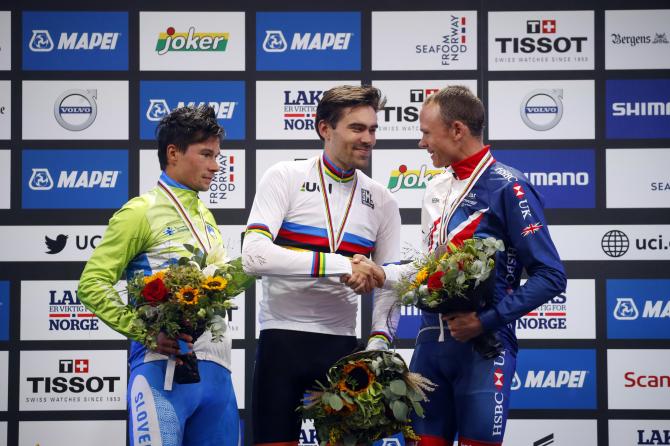
Patrick is a freelance sports writer and editor. He’s an NCTJ-accredited journalist with a bachelor’s degree in modern languages (French and Spanish). Patrick worked full-time at Cyclingnews for eight years between 2015 and 2023, latterly as Deputy Editor.
